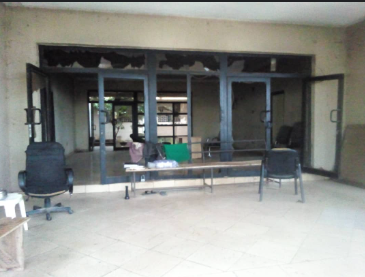The courtroom of the Dutse Customary Court, Ushafa, Abuja, is alive with a charged atmosphere of tension and stakes as a new chapter unfolds in the divorce between Chiwendu Nwadi and Emeka Nwadi. The Chief Justice of the Court, Aderinto Adesoji, has appealed for the resumption of the hearing in the case that raises critical questions about justice and the protection of the rights of families.
The scene is set against a complex backdrop where the Dutse Court is sharing its premises with another institution after its facilities were destroyed four years ago. This forced cohabitation creates logistical and time challenges for hearings, directly impacting the speed with which justice is delivered.
Adesoji highlights the recurring dilemma facing the Court, with hearings limited to two days a week, despite the urgency of many cases involving families and child custody. It highlights the urgent need to expedite proceedings to ensure effective and compassionate justice for all parties involved.
Lawyers for the stakeholders are also subject to the time and space constraints imposed by the functioning of the Court, which hampers their ability to effectively defend the interests of their clients. The call by the Chief Justice to the Nigerian Bar Association (NBA) to renovate the Dutse facilities is a wake-up call to restore access to speedy and fair justice.
Moses Ibe, the representative of the plaintiff, pledged to convey this urgent call to the NBA branch in Bwari for immediate action. He stressed how the distance between the Court and the stakeholders, combined with the infrequency of hearings, is compromising the speed of judgments. This slowness is in contrast to the initial objective of bringing justice closer to the citizens, a mission hampered by the inaction of the authorities to restore the Dutse Court premises.
Despite these challenges, the quest for justice continues, with the next hearing being postponed to October 21 to allow the opposing party to file its response. Respect for the status quo, particularly with regard to child custody, is highlighted as a priority to protect the interests of the most vulnerable in this delicate context.
At the heart of this divorce case unfolds a story marked by pain and betrayal, where the quest for truth and reparation guides the protagonists’ steps towards a fair and ethical resolution. This legal saga reveals the flaws and hopes of a judicial system in search of renovation and efficiency to best serve those who need it most.
In this complex story, which mixes marital conflicts, personal dramas and the quest for redemption, a portrait emerges of a changing society, faced with unprecedented challenges to guarantee access to fair and protective justice for all.

